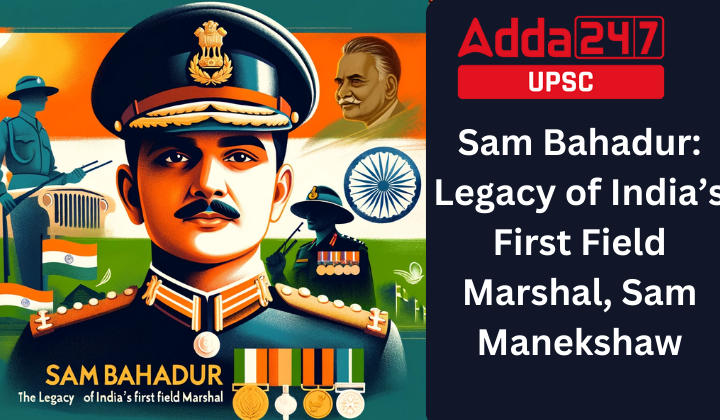Table of Contents
Field Marshal of India Sam Manekshaw, affectionately known as ‘Sam Bahadur,’ remains a towering figure in Indian military history. As India reminisces about his remarkable life, especially with the release of a biographical film, it’s crucial to delve into the memories and anecdotes shared by those who knew him closely. Lt Gen Deepender Singh (retd), former Military Assistant to Manekshaw, provides a unique perspective on the life and character of this legendary soldier.
The Multifaceted Personality of Sam Bahadur
Manekshaw’s personality was a blend of showmanship and soldiery grit. He possessed the ability to seamlessly switch between his love for the limelight and his dedication to military discipline. His reaction to a film about his life would likely have mirrored this duality—a mix of excitement and a critical eye on its portrayal of the Army.
Humane Leadership
A striking trait for Manekshaw was his humane approach to leadership. The aura of his rank never overshadowed his interactions with subordinates.
Deepender Singh recalls instances where Manekshaw’s gestures of kindness, like sharing music tapes, were enough to dissolve any tension. This approachability and empathy made him a leader who was respected not just for his rank but for his character.
Manekshaw’s Identity and Pride
Manekshaw’s roots in Amritsar were a point of personal pride. His connection to the city went beyond just childhood memories; it was a touchstone of his identity. The anecdote of his visit to his childhood home, where he showed Singh the tree he had planted, reflects a deep-seated connection to his origins.
A Commander Amongst Soldiers
Sam Bahadur’s command of the company of Sikh soldiers in Burma highlighted his adaptability and cultural awareness. His fluency in Punjabi and his willingness to help former soldiers of his regiment long after the war underscored his dedication to his men, transcending the boundaries of time and rank.
Integrity in Adversity
Perhaps one of the most defining elements of Manekshaw’s character was his integrity, especially in the face of adversity. The episode where he refrained from seeking revenge against an officer who had wronged him showcases his moral fortitude. This act of forgiveness in a highly hierarchical and discipline-driven environment like the military speaks volumes about his character.
Diplomatic Achievements Post-1971 War
Manekshaw’s diplomatic skills were as sharp as his military acumen. His negotiations with Pakistan over the return of captured territories following the Shimla agreement were crucial to maintaining the fragile peace post-1971. His ability to persuade and negotiate with his Pakistani counterparts was instrumental in resolving complex territorial disputes.
Lahore Visits
The visits to Lahore after the 1971 war highlighted not only Manekshaw’s diplomatic skills but also the respect he commanded from his counterparts. His reception in Lahore, including the symbolic gesture by the governor’s staff members, demonstrated the deep impact of his leadership style. This incident also illustrated the humane treatment of prisoners of war by the Indian Army under his command, reinforcing his commitment to the ethics of warfare.
Conclusion: The Legacy of Sam Bahadur
Field Marshal Sam Manekshaw’s life and career offer numerous lessons in leadership, integrity, and patriotism. His multifaceted personality, empathetic leadership style, and unwavering commitment to his country and his men make him an enduring icon in Indian military history. As his story continues to inspire generations, it’s essential to remember and celebrate the values he stood for: courage, honesty, and a deep love for his country.



 TSPSC Group 1 Question Paper 2024, Downl...
TSPSC Group 1 Question Paper 2024, Downl...
 TSPSC Group 1 Answer key 2024 Out, Downl...
TSPSC Group 1 Answer key 2024 Out, Downl...
 UPSC Prelims 2024 Question Paper, Downlo...
UPSC Prelims 2024 Question Paper, Downlo...




